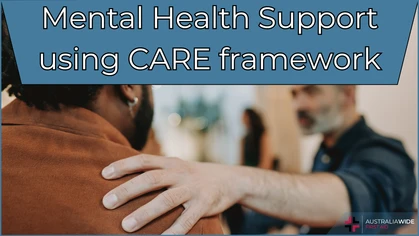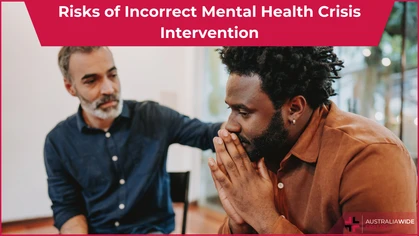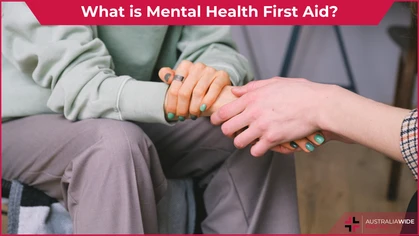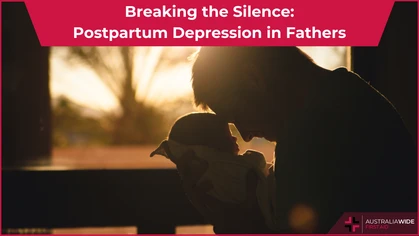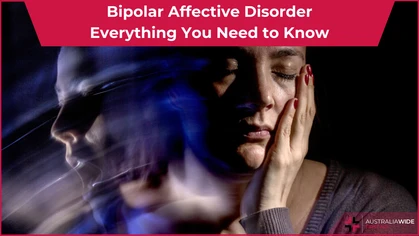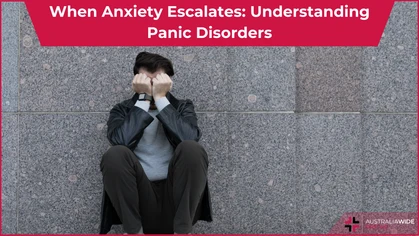How to Assist Someone Experiencing a Panic Attack

Mental Health
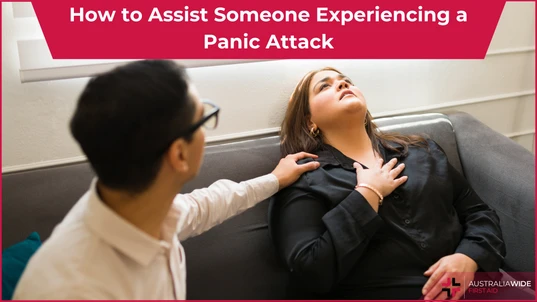 Panic attacks can be extremely distressing for those who experience them.
They are sudden, intense episodes of fear or anxiety that can leave individuals feeling overwhelmed and helpless.
Knowing how to help someone during a panic attack can be crucial in providing the necessary support and comfort.
This guide aims to equip you with the knowledge and skills you need to assist someone in need.
Panic attacks can be extremely distressing for those who experience them.
They are sudden, intense episodes of fear or anxiety that can leave individuals feeling overwhelmed and helpless.
Knowing how to help someone during a panic attack can be crucial in providing the necessary support and comfort.
This guide aims to equip you with the knowledge and skills you need to assist someone in need.
What is a Panic Attack?
A panic attack is a sudden onset of intense fear or discomfort that reaches a peak within minutes. These attacks can occur unexpectedly or can be triggered by a specific situation. Panic attacks can be frightening experiences, but they typically pass relatively quickly, often within 10 to 20 minutes. However, they can leave a person feeling exhausted and emotionally drained afterward.Potential Triggers of Panic Attacks
There are several potential triggers of panic attacks that individuals should be aware of.- Stressful Situations: High-pressure environments, work deadlines, or personal conflicts can trigger panic attacks.
- Traumatic Events: Past traumas, such as abuse or accidents, may resurface and provoke panic attacks.
- Phobias: Specific fears, such as fear of heights, enclosed spaces, or public speaking, can lead to panic attacks.
- Physical Health Issues: Certain medical conditions, like heart palpitations or thyroid disorders, can trigger panic attacks.
- Substance Use: Alcohol, caffeine, or recreational drugs can exacerbate anxiety and induce panic attacks.
- Lifestyle Factors: Poor sleep, lack of exercise, or unhealthy eating habits can contribute to heightened anxiety levels and trigger panic attacks.
Signs and Symptoms of a Panic Attack
Knowing the signs and symptoms, you can pick out who is facing a panic attack so you can help them promptly.- Physical Symptoms: Increased heart rate, sweating, trembling, shortness of breath, chest pain, nausea, dizziness.
- Emotional Symptoms: Intense fear, impending doom, feeling detached from reality, feeling out of control.
- Behavioural Symptoms: Seeking reassurance, pacing, rocking back and forth, restlessness.
Practical Advice for Assisting in the Moment
Here are some key points to keep in mind when someone is facing a panic attack: Remain Calm It's crucial to maintain a calm demeanour as your composure can help provide a sense of stability and reassurance to the person experiencing the panic attack. Validate Their Feelings Acknowledge their experience and avoid judgment. Validate their emotions and let them know that their feelings are valid. Refrain from using phrases like "just relax" or "it's all in your head," as they can invalidate their experience. Ask Them Their Needs Calm the person and encourage them to verbalize what they need so you can manage accordingly. Speak in Simple Language Avoid using long sentences, be simple and to the point. Use phrases the individual can clearly understand. Use supporting phrases like “ You can get through this” or “What you are going through is scary but not dangerous”. Encourage Slow Breathing Guide them to take slow, deep breaths to regulate their breathing or use other relaxation techniques. Offer Reassurance Let the person know that panic attacks are temporary and will eventually subside. Offer support and remind them that you are there for them throughout the process. Provide a Safe Environment Move them to a quiet, comfortable space away from crowds or stimuli where they can feel secure. Adjusting the lighting or offering a blanket can contribute to a soothing atmosphere. Utilize grounding techniques Encourage them to focus on their senses by describing what they observe, hear, feel, and smell. This practice can divert their attention away from the panic and back to the present moment. Offer distractions Engaging in simple activities like counting backwards, playing a game, or listening to calming music can help redirect their focus and alleviate the intensity of the panic attack. Use the 3-3-3 Rule When guiding and comforting someone during a panic attack, one potential strategy is to encourage them to identify 3 objects, and then 3 sounds and then moving three body parts. This is an effective strategy to manage panic attacks.Aftercare Strategies
Once the panic attack has passed, you can recommend the following methods to the person to avoid a similar situation in the future.- Encourage Professional Help: Suggest seeking support from a mental health professional or GP.
- Offer Emotional Support: Listen attentively and provide a non-judgmental space for them to express their feelings.
- Follow-Up: Check in with them after the panic attack to show continued support.
- Recommend Relaxation Techniques
Relaxation Techniques for Managing Panic Attacks
Following are some tried and tested techniques for coping with a panic attack. Deep Breathing Encourage slow, deep breaths to help regulate breathing and calm the nervous system. Progressive Muscle Relaxation Guide them to tense and release muscle groups, promoting physical relaxation. Mindfulness Meditation Suggest focusing on the present moment to cultivate awareness and reduce overwhelming thoughts. Grounding Techniques Prompt them to engage their senses by describing objects around them or focusing on physical sensations. Guided Imagery Encourage visualization of peaceful scenes or positive outcomes to shift focus from anxiety to relaxation. Yoga or Stretching Recommend gentle yoga poses or stretching exercises to release tension and promote relaxation. Aromatherapy Suggest using calming scents like lavender or chamomile to create a soothing environment. By incorporating these relaxation techniques into their routine, individuals can better cope with panic attacks and enhance their overall well-being.Dealing with Refusal of Help
If a person refuses help during a panic attack, respect their autonomy and boundaries. Reassure them that you are available if they change their mind. Avoid pressuring them and allow them to take the lead in seeking assistance. Forcing help is never an option when dealing someone with a panic attack.Assisting Strangers in Public
When dealing with strangers in public it is essential to keep in mind:- Approach Cautiously: Introduce yourself calmly and offer help without intruding on their personal space.
- Offer Practical Assistance: Provide guidance on finding a quiet area or contacting emergency services if needed.
- Stay Until Help Arrives: Offer to remain with them until they feel more stable or until professional help arrives.
Supporting a Co-Worker
When a co-worker experiences a panic attack, you can follow the above advice for assisting in the moment. Afterwards, do the following:- Maintain Confidentiality: Respect their privacy and offer support discreetly.
- Direct them to Resources: Encourage them to reach out to their manager or HR department for additional support.
- Normalize Seeking Help: Emphasize the importance of mental health and seeking professional assistance when needed.
Conclusion
Your understanding and empathy can make a significant difference in someone's experience during a panic attack. By following these guidelines, you can provide valuable support to those in distress and contribute to a more compassionate and inclusive community. Thank you for being a caring and informed ally in mental health awareness and support!
Originally published at
https://www.australiawidefirstaid.com.au/resources/how-to-assist-someone-experiencing-a-panic-attack
as part of the Australia Wide First Aid Articles Library

